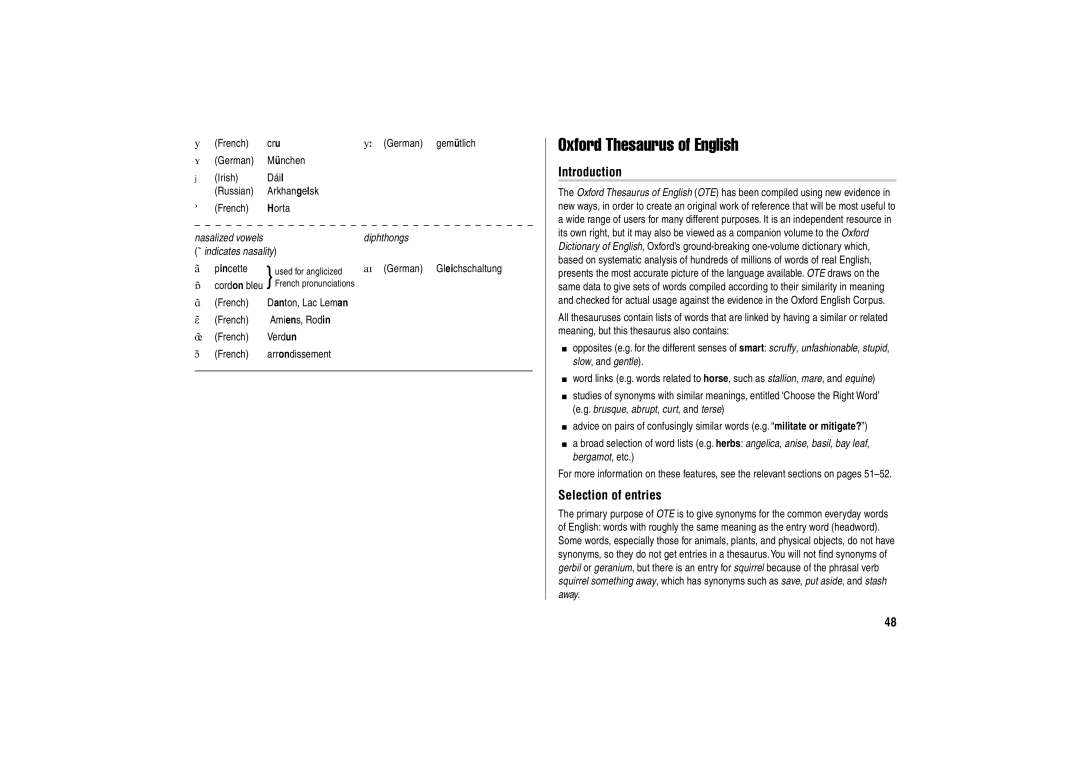
y | (French) | cru | y; (German) gemütlich |
Y | (German) | München |
|
j | (Irish) | Dáil |
|
| (Russian) | Arkhangelsk |
|
>(French) Horta
nasalized vowels |
| diphthongs | |
(~ indicates nasality) |
| ||
a~ | pincette | used for anglicized | aI (German) Gleichschaltung |
Q~ | cordon bleu | } French pronunciations |
|
A~ | (French) | Danton, Lac Leman |
|
E~ | (French) | Amiens, Rodin |
|
9~ | (French) | Verdun |
|
O~ | (French) | arrondissement |
|
|
|
|
|
Oxford Thesaurus of English
Introduction
The Oxford Thesaurus of English (OTE) has been compiled using new evidence in new ways, in order to create an original work of reference that will be most useful to a wide range of users for many different purposes. It is an independent resource in its own right, but it may also be viewed as a companion volume to the Oxford Dictionary of English, Oxford’s
All thesauruses contain lists of words that are linked by having a similar or related meaning, but this thesaurus also contains:
■opposites (e.g. for the different senses of smart: scruffy, unfashionable, stupid, slow, and gentle).
■word links (e.g. words related to horse, such as stallion, mare, and equine)
■studies of synonyms with similar meanings, entitled ‘Choose the Right Word’ (e.g. brusque, abrupt, curt, and terse)
■advice on pairs of confusingly similar words (e.g. “militate or mitigate?”)
■a broad selection of word lists (e.g. herbs: angelica, anise, basil, bay leaf, bergamot, etc.)
For more information on these features, see the relevant sections on pages
Selection of entries
The primary purpose of OTE is to give synonyms for the common everyday words of English: words with roughly the same meaning as the entry word (headword). Some words, especially those for animals, plants, and physical objects, do not have synonyms, so they do not get entries in a thesaurus. You will not find synonyms of gerbil or geranium, but there is an entry for squirrel because of the phrasal verb squirrel something away, which has synonyms such as save, put aside, and stash away.
48
